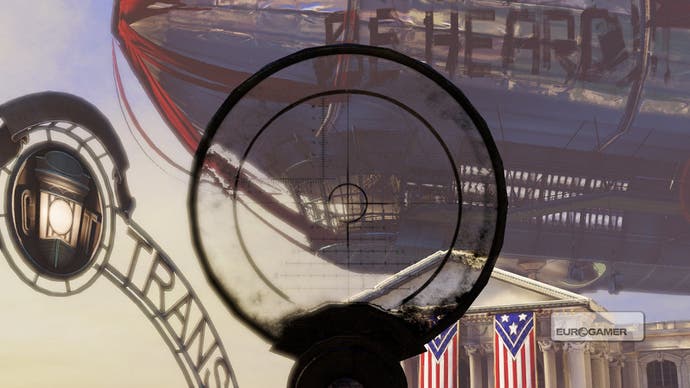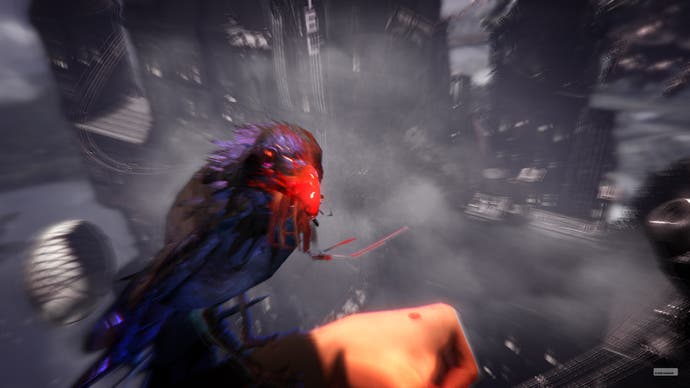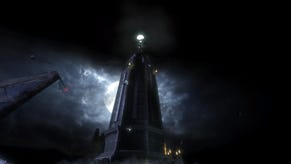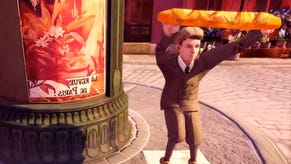BioShock Infinite
Friends in high places.
So Nostrums are permanent. Some of them you encounter at specific points and all players are meant to gain them, but sometime you have a choice. When you find these "Pot Luck" boxes, you choose one of four Nostrums and it becomes a permanent part of your character.
"We want lots of those very granular choices," says Levine. "But they are permanent granular choices as to how your character evolves across the game."
Other seemingly benign or morally ambiguous decisions, like euthanizing a horse or rescuing a man you don't know from a lynching, will weigh on the outcomes too.
"Quite often the theme of our games relates to unintended consequences, and I think we see that where choices are made in this game you're not really sure what the consequences will be," says Levine.
"And there's no angel or devil - Elizabeth's not going to be the angel all the time saying, 'Do this Booker, do the right thing,' because both of them learn very quickly that there's not always a right thing."
Indeed, like Rapture before it, Columbia has been extrapolated from some of the most interesting fringes of the prevailing science and philosophy of its time, and it's the number of ways the people and situations of Columbia have marinated in those ideas that makes the backdrop to the player's story so interesting.

"There's a bifurcation that happens in the city," says Levine. "The original idea was that this city was going to be a floating symbol of the American ideals, of the founding principles. But as quite often happens with political movements, there are people who get different ideas about what that actually means."
The first person to get different ideas in this case is one Z. H. Comstock, who comes into power and takes a more extreme view of the American ideal, turning veneration of the Founding Fathers into a kind of worship. On Comstock's watch, Jefferson, Adams and Franklin graduate from symbols to gods.
In response to this, up rises a worker's movement called Vox Populi, led by a woman named Daisy Fitzroy, and initially the group offers reasonable alternatives. But as Vox Pop gathers followers and starts to threaten Comstock's Founders at a political level, the friction raises the temperature considerably.
"It's very much inspired by looking at groups like the Baader-Meinhof," says Levine, referring to the extreme left-wing group active in Germany between 1970 and the late nineties. "I remember an interview with someone who left the group who said, 'I started to protest Nazis in government and then found myself working with people who blew up an Israeli Airliner, and I don't know how I got there.'"

In one of the demos of the game we get to see, Fitzroy's image is projected onto a giant red banner and she rails against "the big boss" - her idea of The Man - and how he views the worker as an animal to be flogged to death then chopped up and eaten. In the foreground, her followers are preparing to execute a postman.
"Essentially what's going on is a form of ethnic cleansing," says Levine. "She's clearing out this part of the city, moving out the Founders and moving her people in, and anyone connected to the Founders - in this case a poor shmuck, a postman who doesn't know anything - is going to get caught up in it."
As in previous BioShock games, you will get to explore the motives and actions of ideologues like Comstock and Fitzroy by digging around the edges of the interactive space for tape recordings and visual records of their behaviour - like storefronts shut down and smeared in red paint declaring they have been taken back by the workers.








